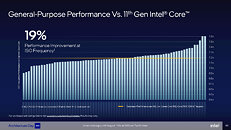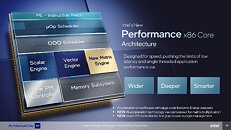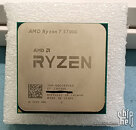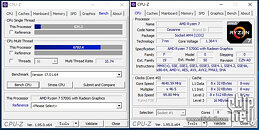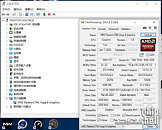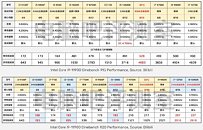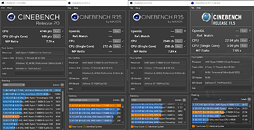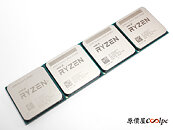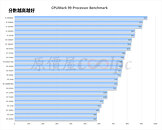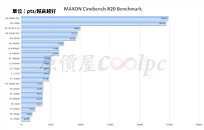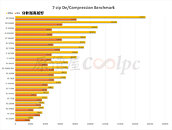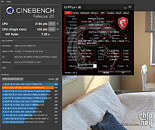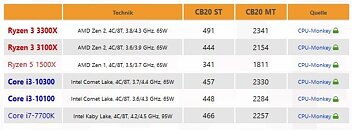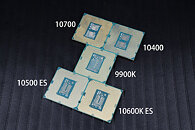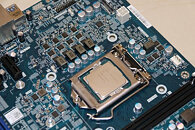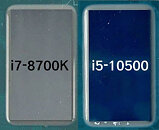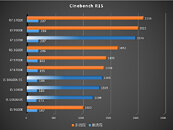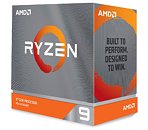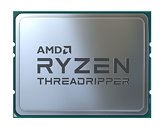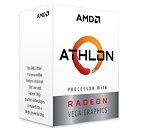
Intel Core Ultra 5 125H Squares off Against AMD Ryzen 7 7840HS in Benchmark Leak
The Intel Core Ultra 5 125H is designed to be a middle-of-the-market processor SKU from Intel's next generation "Meteor Lake" processor family. It comes with a CPU core configuration of 14-core/18-thread. That's 4P+8E+2L (four performance cores, eight efficiency cores, two low-power island cores), although with a full featured Xe-LPG iGPU that has all 8 Xe cores (128 EU) enabled. The chip is normally rated for a 28 W power envelope, although OEMs such as Lenovo have developed a custom 65 W "power mode," which raises the base power value.
A Chinese PC enthusiast with access to an unreleased Lenovo notebook based on this processor, including Lenovo's 65 W Mode toggle, benchmarked it, and compared it with a notebook powered by an AMD Ryzen 7 7840HS "Phoenix" processor (8-core/16-thread, "Zen 4," Radeon 780M iGPU with all 12 compute units enabled); and another notebook powered by Intel's current middle-of-market chip in the H-segment, the Core i5-13500H "Raptor Lake" (4P+8E, Xe-LP iGPU with 5 Xe cores or 80 EU). The results were a little unexpected. The Xe-LPG iGPU of the 125H is shown beating both the Radeon 780M of the Ryzen, and the Xe-LP iGPU of the i5-13500H, with the highest 3DMark Time Spy and Fire Strike scores in the comparison. The Xe-LPG iGPU is 15% faster than the Radeon 780M in Time Spy, and 6% faster in Fire Strike. It's a whopping 70% faster than the Xe-LP iGPU of the "Raptor Lake" chip in this comparison. Things are shockingly different on the CPU performance front for the "Meteor Lake" chip.
A Chinese PC enthusiast with access to an unreleased Lenovo notebook based on this processor, including Lenovo's 65 W Mode toggle, benchmarked it, and compared it with a notebook powered by an AMD Ryzen 7 7840HS "Phoenix" processor (8-core/16-thread, "Zen 4," Radeon 780M iGPU with all 12 compute units enabled); and another notebook powered by Intel's current middle-of-market chip in the H-segment, the Core i5-13500H "Raptor Lake" (4P+8E, Xe-LP iGPU with 5 Xe cores or 80 EU). The results were a little unexpected. The Xe-LPG iGPU of the 125H is shown beating both the Radeon 780M of the Ryzen, and the Xe-LP iGPU of the i5-13500H, with the highest 3DMark Time Spy and Fire Strike scores in the comparison. The Xe-LPG iGPU is 15% faster than the Radeon 780M in Time Spy, and 6% faster in Fire Strike. It's a whopping 70% faster than the Xe-LP iGPU of the "Raptor Lake" chip in this comparison. Things are shockingly different on the CPU performance front for the "Meteor Lake" chip.



















